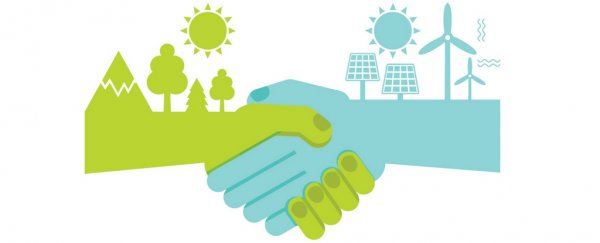Google is teaming up with the United Nations to change the way that we understand our planet. The goal of the partnership, which was announced today, is to provide unprecedented access to anyone who wishes to use Google's extensive environmental data.
When the free, open access platform is completed, it will create a much-needed bridge between environmental science and global policy, enabling governments and NGOs to create and track evidence-based environmental targets.
Using the tech giant's massive parallel cloud computing technology, Google will periodically upload new satellite images, maps, analysis and data from its Earth observation systems to the platform.
"We will only be able to solve the biggest environmental challenges of our time if we get the data right," said Erik Solheim, Head of UN Environment, in a press release.
"UN Environment is excited to be partnering with Google, to make sure we have the most sophisticated online tools to track progress, identify priority areas for our action, and bring us one step closer to a sustainable world."
It's all well and good for a government to set up environmental and sustainability targets, but those targets are only as good as the data that drives them. Too often, however, gathering the appropriate data can be a complex, time-consuming and expensive process that many nations cannot afford to undertake.
The new partnership, will allow governments and organizations to fill the gaps in their knowledge, creating the safest and most effective sustainable development goals.
"This partnership announcement builds on a common shared vision between our organizations," said Rebecca Moore, Director, Google Earth, Earth Engine & Earth Outreach.
"We are excited to enable all countries with equal access to the latest technology and information in support of global climate action and sustainable development."
At first, the new platform will focus solely on freshwater ecosystems, including mountains, forests, wetlands, rivers, aquifers and lakes. And while this may sound small in scope, these areas account for almost 10 percent of the world's known species - an important area of research, to be sure.
In the long term, Google and the UN hope to use satellite imagery and analysis to provide information on how the world is progressing with the UN's sustainable development goals - goals which include issues like climate change, economic inequality, innovation and sustainable consumption.
The initiative is huge step forward, providing international open data that will not only advance environmental research, but will also improve data driven solutions to some of the most pressing environmental challenges that we currently face.
The partnership could mean big things for our planet.
Science AF is ScienceAlert's new editorial section where we explore society's most complex problems using science, sanity and humor.
